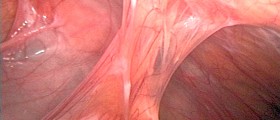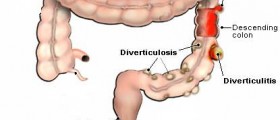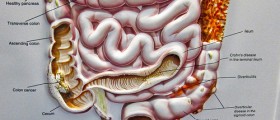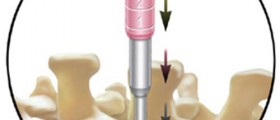
Appendix surgery — also called appendectomy — is a surgical procedure in which the appendix is removed, after an inflammation called appendicitis.
What is the appendix?
The appendix is a worm like blind-ended tube attached to the cecum, the proximal part of the large intestine. This organ does not have any function in modern humans, even though there were certain studies which tried to confirm the importance of the appendix in harboring and protecting some of the rich bacterial populations essential for the proper function of the human colon.
Who needs an appendectomy?
Appendicitis is an inflammation of the appendix, and this medical condition requires surgery. The surgery should be performed prior the rupture of the appendix since this rupture can lead to many serious complications, including death. Today, appendix surgery is routinely performed laparoscopically, through small incisions made strategically to allow viewing with a small camera. Only in case of appendix rupture does the patient need to undergo open abdominal appendectomy surgery.
How long does it take to recover from appendix surgery?
The recovery time after appendix surgery depends on whether the patient underwent a laparoscopic removal of the appendix or open abdominal appendectomy surgery. The recovery time takes longer — two to four weeks, on average — in case of open abdominal surgery, especially if the appendix ruptured even prior the surgical procedure. With a laparoscopic appendectomy, you may be able to return to work and normal daily activities after one to three weeks.
In case of appendix rupture, the surgeon makes a cut, removes the appendix, cleans the peritoneum from the collection of pus, and places a catheter into the abdominal cavity which will assist in the removal of the remaining pus and fluids. Patients are given high doses of antibiotics to prevent potential sepsis and a lethal outcome. After the rupture of the appendix, patients are held in hospital for a longer period of time.
After your appendectomy surgery, follow your medical team's instructions — rest plenty, but do engage in light physical activities like a small walk to speed your recovery, avoid heavy lifting, and only take showers and baths after your doctor tells you that you can.
Complications after appendix surgery
Even though appendix surgery is routinely performed in some cases. there is an increased risk of postoperative complications. This particularly refers to cases in which the appendix ruptured prior the very operation.
The most common complication after appendix surgery is infection. Since the removal of the appendix is performed because this organ is inflamed, it is clear that even after its resection there are residual bacteria in the abdominal cavity which may lead to further spread of the infection. This potential complication is prevented by high doses of antibiotics given to patients after the appendectomy surgery. Infection of the wound is usually caused by inappropriate handling of the bandage, or the result of hospital-acquired infections.
One more possible complication is bowel obstruction. Bowel obstruction develops as consequence of adhesions. These pockets of scar tissue sometimes form after the surgery, and the bowel may get trapped by them which eventually causes a blockage. In severe cases, bowel blockage also requires surgery.
In extremely rare cases there is a chance of forming a fistula on the front abdominal wall after an appendectomy. Namely, after resection of the appendix, the cecum is stitched. However, if these stitches break down, the hole may reopen. To prevent leakage of the colon contents the body attaches the hole to the front wall of the abdomen and this connection eventually results in a fistula. Luckily, this a very rare complication of appendix surgery.
- www.betterhealth.vic.gov.au/health/conditionsandtreatments/appendectomy
- www.nhs.uk/conditions/appendicitis/complications/
- Photo courtesy of Jimee, Jackie, Tom & Asha by Flickr: www.flickr.com/photos/wilderdom/222676454/

















Your thoughts on this
Loading...